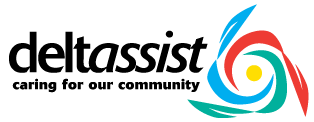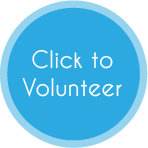Substance Use Blog Series Part 5: Treatment Programs
Jun 7, 2020
Welcome to the Deltassist Substance Use Services (SUS) blog series. This weekly series has been created during the Covid-19 pandemic to help increase awareness around drug and alcohol use and mental health. These initial posts contain information for people with questions about resources to help quit or reduce their substance use.
Today’s post is on residential and non-residential treatment. The list of topics covered in other posts is at the bottom of the page.
What is a treatment program?
Drug and alcohol treatment programs offer structured therapeutic activities to people who want to reduce their substance use and who do not need medically supervised withdrawal management.
Treatment programs usually include individual counselling, group counselling, some form of peer support (such as AA, NA, or SMART Recovery), and may include cultural activities, exercise programs, yoga and/or mindfulness practice, employment skills training, or a variety of other activities that have been shown to support people in reaching their goals around reducing substance use. Different treatment centres offer different combinations of these activities.
What is ‘residential’ or ‘inpatient’ vs ‘outpatient’ or ‘day-treatment’?
Some treatment programs are designed for participants to stay overnight at the centre where they are offered. These are called ‘inpatient’ or ‘residential programs’.
‘Outpatient’ or day-treatment programs offer services and structured activities, but participants return home at night to sleep. Sometimes these programs are only a few days or hours a week, rather than full-time programs. The length of time involved in committing to a treatment program ranges from a few weeks to a few months. Anyone is allowed to leave or quit treatment at any time, although treatment centres have different policies on returning once a person has left without completing the program.
Self-referral Treatment for Delta Residents
Day-tox at Creekside is the only self-referral treatment program run by Fraser Health. People who use substances interested in referring themselves to treatment can call:
Day-tox at Creekside Withdrawal Management Detox Services
604-587-3755 or 1-888-587-3755
Option #4 for Day-tox
13740 94a Ave, Surrey
Daytox is a free, 6-week, non-residential treatment program for those who no longer need supervised withdrawal management, or are in the early stages of recovery. Day-tox is organized to work around people’s schedules. Participants attend up to ten hours per week and activities are available evenings and weekends as well as during regular business hours. Examples of activities offered are supportive counselling, exercise and relaxation sessions, as well as short classes or groups on topics relevant to recovery, such as relapse prevention. Because Day-tox is self-referral, it is often the fastest treatment option to access.
Fraser Health Residential Treatment for Delta Residents
For all other treatment programs, you will need the support of a substance use counsellor to complete an application with you. The applications are long and quite extensive, expect to meet with your counsellor several times in order to complete the application.
See the previous post in our blog series to find a counsellor.
Descriptions of the three kinds of residential treatment programs offered through Fraser Health can be found here, on Fraser Health’s website.
A list of all the Fraser Health-contracted residential treatment programs is provided here. Many of the programs have their own websites that you can google search individually to find out more details.
Costs: residential treatment centres include fees beyond what is covered by the health authority. Substance use counsellors, such as those at Deltassist, can help you apply for government subsidies to cover these costs through https://www.myselfserve.gov.bc.ca/
Fraser Health Day-Treatment (non-residential) Programs
Fraser Health also funds three, day-treatment programs run by Sage Counselling and Addictions Services. These are free for participants. There is a four-week co-ed group for men and women, as well as a five-week women’s group and a five-week men’s group. Right now (during the pandemic) the groups are being offered online. Information about Fraser Health’s day-treatment programs are available on the Sage Counselling website at: https://sagecounselling.com/fraser_health_programs.htm In order to access these groups, you will need to obtain a referral from a substance use counsellor.
************************
To find out general information about particular treatment programs in the Fraser Health Region, you can also call the BC Alcohol and Drug Information and Referral Service at 1-800-663-1441 or 604-660-9382
~If you need immediate support coping with a crisis while waiting for help, please call the Fraser Health Crisis Line at 604-951-8855 or toll-free 1-877-820-7444. They are open 24/7. ~
Click the links for information about each of these kinds of services:
- Withdrawal Management (known sometimes as Detox)
- Medical treatment for Opioid Use disorder (Opioid Agonist Treatment)
- Substance Use Counselling
- Treatment Programs
- Peer Support/Online Self-Help
Update Sep 18, 2020: There are now also posts specifically on youth resources and resources for family and friends of people who use substances. Click on the highlighted words to go to those posts.







